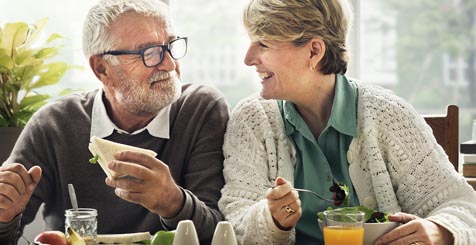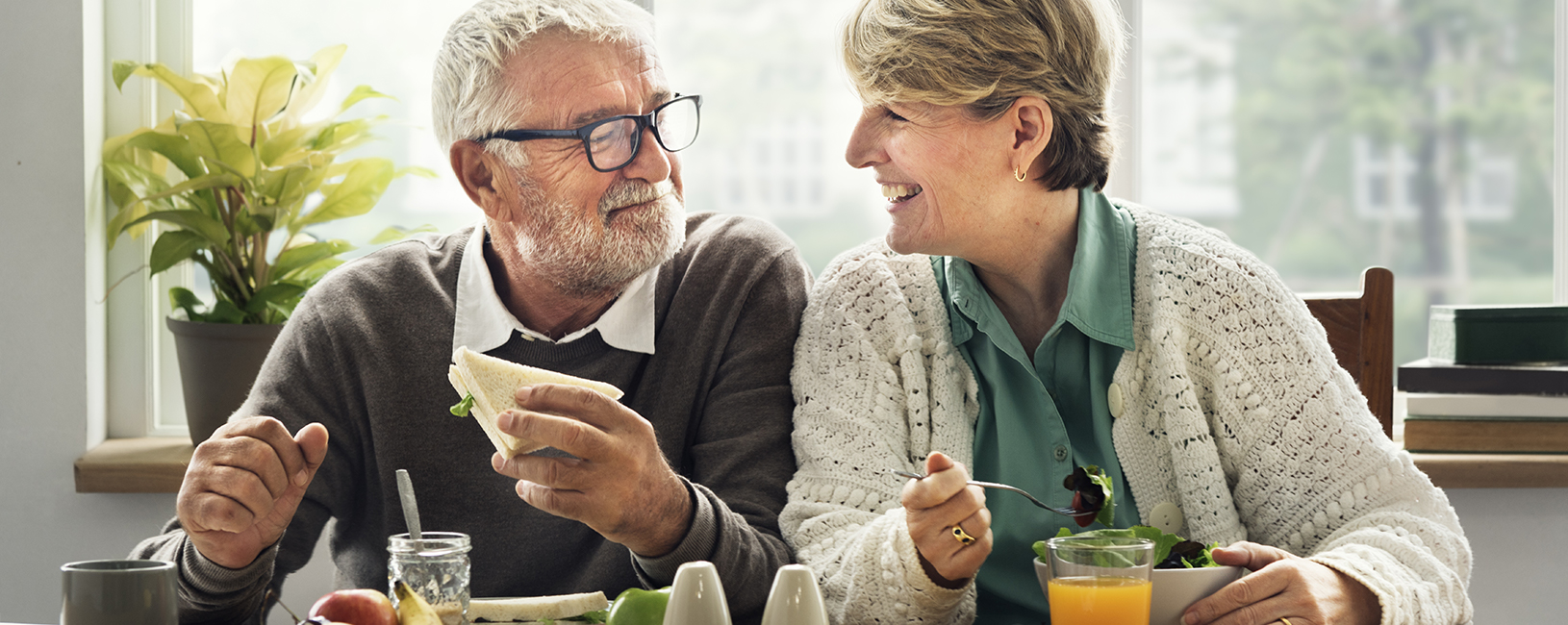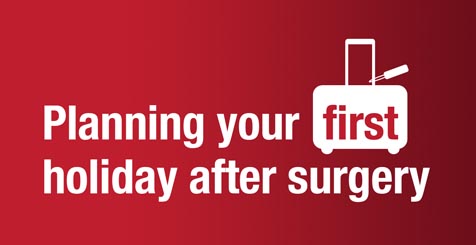Whether you’re getting ready for surgery or recovering from your operation, nutrition has an important role to play in helping your body to achieve the best outcome. If you’re wondering what to eat before and after heart valve surgery, here’s some straightforward advice to keep in mind…
Before surgery
No doubt you’ve got plenty on your mind once you know that you’ll be going for surgery. Eating healthily in the run-up to your operation will put you in a good position for a smooth and speedy recovery, preparing your body for the demands of surgery so that it can heal more quickly. At this point, thinking not only about the food you eat but how it affects your weight is the key to getting the balance right.
Gaining weight
Perhaps you already eat healthily and are following the advice of your doctor or dietitian – if that’s the case, keep up the good work. However, if your appetite’s low, you’ve been struggling to eat normally and some weight has dropped off, it’s a good idea to focus on looking for foods that you find more appealing to eat. You can also try supplement drinks to take on more calories and protein.
Losing weight
Although it’s natural (and sensible) to want to reach your ideal weight, generally speaking, a very strict diet involving fast weight loss is not the best idea before surgery. If you’ve been dieting and losing weight very quickly thanks to your efforts, it’s sensible to adjust your diet to include a few more calories to manage the speed of your weight loss. Adjust your diet plan to aim to drop around a pound a week, rather than crash dieting, unless you’ve been given different advice by your doctor or nutritionist.
Managing diabetes
If you have diabetes, it’s important to keep your blood sugars well controlled as high blood sugar will make it more difficult for your body to heal after surgery.

After surgery
Once you’ve had heart valve surgery, eating a healthy diet will help speed you along the road to recovery. The right foodstuffs support healing, helping to manage the risk of future complications.
Loss of appetite
Once you’ve had your heart valve operation, you may notice some changes to your appetite, as both the operation and the medication you take afterwards can affect it. So don’t be too surprised if you’re feeling less hungry than usual, as many people go through the same thing. Perhaps food seems less appetising or flavoursome than before – you may even experience an unusual metallic taste in your mouth or a change in your sense of smell. Eating little and often is the best approach to support your body’s healing.
Best food for recovery
Take a look at your typical food shopping list, and decide whether or not you need to change your eating habits. Aim to eat plenty of fruits, vegetables, wholegrain foods, seeds and nuts, as all of these can reduce your risk of heart disease. A healthy diet provides lots of vitamins, minerals, antioxidants and dietary fibre, which will help to protect your heart in the future.
What might a ‘good’ mix of food look like?
- Meat – and/or meat alternatives such as eggs, tofu, legumes and nuts
- Fish – try for two serving of oily fish a week – salmon, mackerel or sardines, for instance – to get a full hit of heart-healthy omega-3 fats
- Wholegrains – wholemeal or wholegrain bread or crackers, brown rice, wholemeal pasta are obvious choices, but you can mix things up with other grains like quinoa, barley, rye, rolled oats, polenta and couscous
- Dairy – go for low fat options, you’ll soon get used to it
- Healthy fats – a small amount of ‘good’ fats and oils from nuts, seeds, avocado and oily fish
- Water – stay hydrated and steer clear of sugary soft drinks; if you drink alcohol, keep it to a minimum
Your daily mission is to eat two portions of fruit, five-a-day of vegetables and four or more servings of wholegrains – if that sounds like a lot, the quantity may vary based on your energy needs.
What to avoid
Yes, there are a few sacrifices to be made to get your post-op diet right – but the reward of a quicker recovery is worth a little hardship! Beyond resisting fast food, what else should be consigned to the past?
- Cut right down on salt – use as little salt as possible when cooking as this will help to lower your blood pressure and prevent fluid retention. Beware of luncheon meats, canned soups and spaghetti, ready meals, snack foods and smoked fish, as all have a high salt content
- Ditch sugary foods – the empty calories can cause weight gain and sugary treats are often eaten at the expense of healthier options
- Say no to saturated fats – these raise your cholesterol level. Cross the following off your shopping list: milk and white chocolate, toffee, cakes, puddings and biscuits; pastries and pies; fatty meat, such as lamb chops, liver and other offal; processed meat (sausages, burgers, bacon and kebabs); butter, lard, ghee, dripping, margarine, goose fat and suet; coconut and palm oils and coconut cream; full-fat dairy products (cream, milk, yoghurt, crème fraiche, eggs and whole-milk cheese).
If you’re looking for some inspiration to make your new and improved diet as exciting as possible, there are some fantastic recipes on Heart UK’s website here, with plenty of mouth-watering cholesterol busters to try out.






